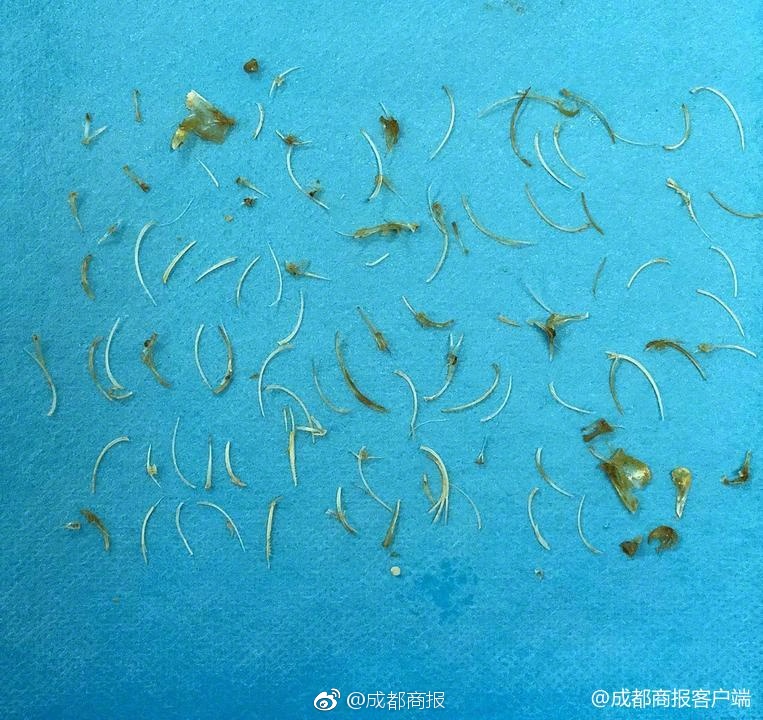
C [Analysis] The operating system should usually include the following five functional modules: (1) Processor management. When multiple programs run at the same time, solve the processor (CPU) time allocation problem. ( 2) Operation management. The program to complete an independent task and its required data constitute a task.
The five functions of the computer operating system are: memory management, processor management, file management, device management and job management. The most basic function of processor management is to handle interrupt events. The processor can only detect interrupt events and generate interrupts and cannot process them. After configuring the operating system, various events can be handled.
The five functions of the operating system are processor management, memory management, device management, file management and job management.Processor management The most basic function of processor management is to process interrupt events. After configuring the operating system, various events can be processed.

The main function of the computer operating system is process management Reason, its work is mainly the process.Scheduling, in the case of a single user and a single task, the processor is only monopolized by one user's task, and the process management work is very simple.
The operating system has five functions: processor management: mainly controls and manages the work of the CPU. Storage management: mainly allocate and manage memory. Device management: mainly manage basic input and output devices. File management: responsible for the organization, storage, operation and protection of computer files.
The functions of the computer operating system include: processor management, memory management, device management, file management, job management and other functional modules. Processor management. The most basic function of processor management is to handle interrupt events. The processor can only detect interrupt events and generate interrupts and cannot process them.
According to the query Baidu Education, the five functions that computer operating systems usually have are ___.
Five management functions of the operating system: job management: including tasks, interface management, human-computer interaction, graphical interface, voice control and virtual reality, etc. File management: also known as information management. Storage management: The essence is the management of storage "space", which mainly refers to the management of the main memory.
The five functions of the operating system are processor management, memory management, device management, file management and job management. Processor management The most basic function of processor management is to process interrupt events. After configuring the operating system, various events can be processed.
The operating system has five functions: processor management: mainly controls and manages the work of the CPU.Storage management: mainly carry out the allocation and management of memory. Equipment management: mainly manage basic input and output equipment. File management: responsible for the organization, storage, operation and protection of computer files.
processor management: mainly control and manage the work of cpu. Storage management: mainly carry out memory allocation and management device management: mainly manage basic input and output device file management: responsible for the organization, storage, operation and protection of computer files, etc.
The operating system has five major functions, namely, the functions of the operating system are mainly reflected in the management of computer resources - microprocessors, memory, external devices, files and operations. The operating system sets this management function into the corresponding program management module, and each management The module is in charge of certain functions.
The main function of the operating system is to manage all the resources (hardware and software) of the computer.
The main function of the computer operating system is process management, and its main work is process scheduling. In the case of a single user and a single task, the processor is only monopolized by one user's task, and the work of process management is very simple.
The operating system has five functions: processor management: mainly controls and manages the work of the CPU. Storage management: mainly allocate and manage memory. Device management: mainly manage basic input and output devices. File management: responsible for the organization, storage, operation and protection of computer files.
The main functions of the operating system are resource management, program control and human-computer interaction. Computer system resources can be divided into two categories: equipment resources and information resources. Device resources refer to the hardware devices that make up the computer, such as the central processor, main memory, disk memory, printer, tape memory, monitor, keyboard input device and mouse, etc.
The main function of the computer operating system is process management, and its work is mainly process scheduling. In the case of a single user and a single task, the processor is only exclusive to one task of one user, and the work of process management is very simple.
Operating system (OperatiNg System, abbreviated as OS) is a program collection that controls and manages computer software and hardware resources to organize multiple users to share multiple resources in the most reasonable and effective way. Any other software must be run with the support of the operating system.
The functions of the computer operating system include: processor management, memory management, device management, file management, job management and other functional modules. Processor management. The most basic function of processor management is to handle interrupt events. The processor can only detect interrupt events and generate interrupts and cannot process them.
The operating system has five functions: processor management: mainly controls and manages the work of the CPU. Storage management: mainly allocate and manage memory. Device management: mainly manage basic input and output devices. File management: responsible for the organization, storage, operation and protection of computer files.
Five management functions of the operating system: job management: including tasks, interface management, human-computer interaction, graphical interface, voice control and virtual reality, etc. File management: also known as information management. Storage management: The essence is the management of storage "space", which mainly refers to the management of the main memory.
Binance download APK-APP, download it now, new users will receive a novice gift pack.
C [Analysis] The operating system should usually include the following five functional modules: (1) Processor management. When multiple programs run at the same time, solve the processor (CPU) time allocation problem. ( 2) Operation management. The program to complete an independent task and its required data constitute a task.
The five functions of the computer operating system are: memory management, processor management, file management, device management and job management. The most basic function of processor management is to handle interrupt events. The processor can only detect interrupt events and generate interrupts and cannot process them. After configuring the operating system, various events can be handled.
The five functions of the operating system are processor management, memory management, device management, file management and job management.Processor management The most basic function of processor management is to process interrupt events. After configuring the operating system, various events can be processed.

The main function of the computer operating system is process management Reason, its work is mainly the process.Scheduling, in the case of a single user and a single task, the processor is only monopolized by one user's task, and the process management work is very simple.
The operating system has five functions: processor management: mainly controls and manages the work of the CPU. Storage management: mainly allocate and manage memory. Device management: mainly manage basic input and output devices. File management: responsible for the organization, storage, operation and protection of computer files.
The functions of the computer operating system include: processor management, memory management, device management, file management, job management and other functional modules. Processor management. The most basic function of processor management is to handle interrupt events. The processor can only detect interrupt events and generate interrupts and cannot process them.
According to the query Baidu Education, the five functions that computer operating systems usually have are ___.
Five management functions of the operating system: job management: including tasks, interface management, human-computer interaction, graphical interface, voice control and virtual reality, etc. File management: also known as information management. Storage management: The essence is the management of storage "space", which mainly refers to the management of the main memory.
The five functions of the operating system are processor management, memory management, device management, file management and job management. Processor management The most basic function of processor management is to process interrupt events. After configuring the operating system, various events can be processed.
The operating system has five functions: processor management: mainly controls and manages the work of the CPU.Storage management: mainly carry out the allocation and management of memory. Equipment management: mainly manage basic input and output equipment. File management: responsible for the organization, storage, operation and protection of computer files.
processor management: mainly control and manage the work of cpu. Storage management: mainly carry out memory allocation and management device management: mainly manage basic input and output device file management: responsible for the organization, storage, operation and protection of computer files, etc.
The operating system has five major functions, namely, the functions of the operating system are mainly reflected in the management of computer resources - microprocessors, memory, external devices, files and operations. The operating system sets this management function into the corresponding program management module, and each management The module is in charge of certain functions.
The main function of the operating system is to manage all the resources (hardware and software) of the computer.
The main function of the computer operating system is process management, and its main work is process scheduling. In the case of a single user and a single task, the processor is only monopolized by one user's task, and the work of process management is very simple.
The operating system has five functions: processor management: mainly controls and manages the work of the CPU. Storage management: mainly allocate and manage memory. Device management: mainly manage basic input and output devices. File management: responsible for the organization, storage, operation and protection of computer files.
The main functions of the operating system are resource management, program control and human-computer interaction. Computer system resources can be divided into two categories: equipment resources and information resources. Device resources refer to the hardware devices that make up the computer, such as the central processor, main memory, disk memory, printer, tape memory, monitor, keyboard input device and mouse, etc.
The main function of the computer operating system is process management, and its work is mainly process scheduling. In the case of a single user and a single task, the processor is only exclusive to one task of one user, and the work of process management is very simple.
Operating system (OperatiNg System, abbreviated as OS) is a program collection that controls and manages computer software and hardware resources to organize multiple users to share multiple resources in the most reasonable and effective way. Any other software must be run with the support of the operating system.
The functions of the computer operating system include: processor management, memory management, device management, file management, job management and other functional modules. Processor management. The most basic function of processor management is to handle interrupt events. The processor can only detect interrupt events and generate interrupts and cannot process them.
The operating system has five functions: processor management: mainly controls and manages the work of the CPU. Storage management: mainly allocate and manage memory. Device management: mainly manage basic input and output devices. File management: responsible for the organization, storage, operation and protection of computer files.
Five management functions of the operating system: job management: including tasks, interface management, human-computer interaction, graphical interface, voice control and virtual reality, etc. File management: also known as information management. Storage management: The essence is the management of storage "space", which mainly refers to the management of the main memory.
Binance app download Play Store
author: 2025-01-10 18:12 Binance APK
Binance APK
985.19MB
Check Binance Download for PC Windows 10
Binance Download for PC Windows 10
268.47MB
Check Binance download iOS
Binance download iOS
487.47MB
Check OKX app
OKX app
378.32MB
Check OKX Wallet Sign up
OKX Wallet Sign up
215.36MB
Check OKX app
OKX app
963.29MB
Check OKX Wallet download
OKX Wallet download
417.31MB
Check OKX Wallet
OKX Wallet
489.37MB
Check Binance login
Binance login
782.31MB
Check okx.com login
okx.com login
574.59MB
Check OKX Wallet login
OKX Wallet login
143.71MB
Check Binance login App
Binance login App
453.14MB
Check Binance Download for PC Windows 10
Binance Download for PC Windows 10
781.71MB
Check Binance APK
Binance APK
922.44MB
Check OKX Wallet apk download
OKX Wallet apk download
641.48MB
Check OKX Wallet extension
OKX Wallet extension
114.74MB
Check OKX Wallet apk download latest version
OKX Wallet apk download latest version
345.44MB
Check OKX Wallet login
OKX Wallet login
357.66MB
Check OKX Wallet apk download latest version
OKX Wallet apk download latest version
896.92MB
Check Binance download
Binance download
937.72MB
Check Okx app download
Okx app download
782.25MB
Check Binance download
Binance download
486.24MB
Check OKX Wallet app download for Android
OKX Wallet app download for Android
649.19MB
Check Binance app
Binance app
229.63MB
Check OKX Wallet to exchange
OKX Wallet to exchange
288.33MB
Check Binance app
Binance app
834.44MB
Check Binance download APK
Binance download APK
144.61MB
Check Binance US
Binance US
812.28MB
Check okx.com login
okx.com login
278.73MB
Check Binance APK
Binance APK
141.42MB
Check OKX Wallet Sign up
OKX Wallet Sign up
378.54MB
Check Binance download
Binance download
775.93MB
Check Binance APK
Binance APK
412.57MB
Check OKX review
OKX review
184.58MB
Check Binance wallet
Binance wallet
943.69MB
Check Binance exchange
Binance exchange
141.24MB
Check
Scan to install
Binance download APK to discover more
Netizen comments More
1987 来路不明网
2025-01-10 17:56 recommend
880 斗色争妍网
2025-01-10 17:46 recommend
1165 如临深谷网
2025-01-10 17:33 recommend
1437 讳疾忌医网
2025-01-10 17:25 recommend
1357 善自为谋网
2025-01-10 16:09 recommend